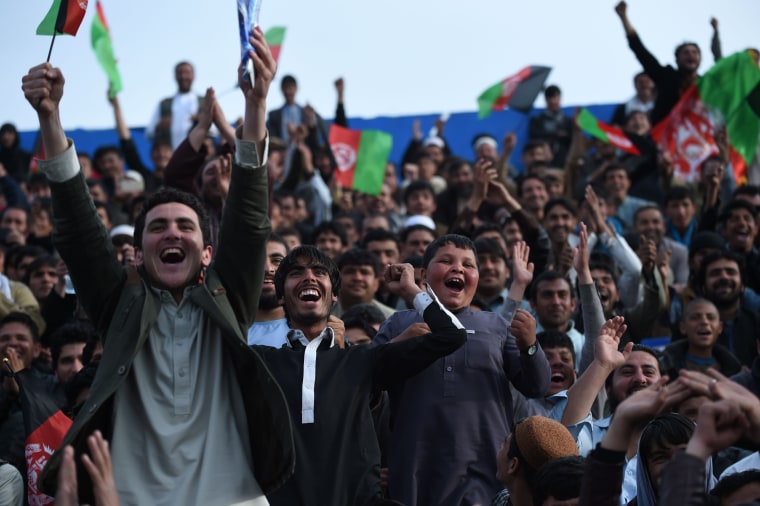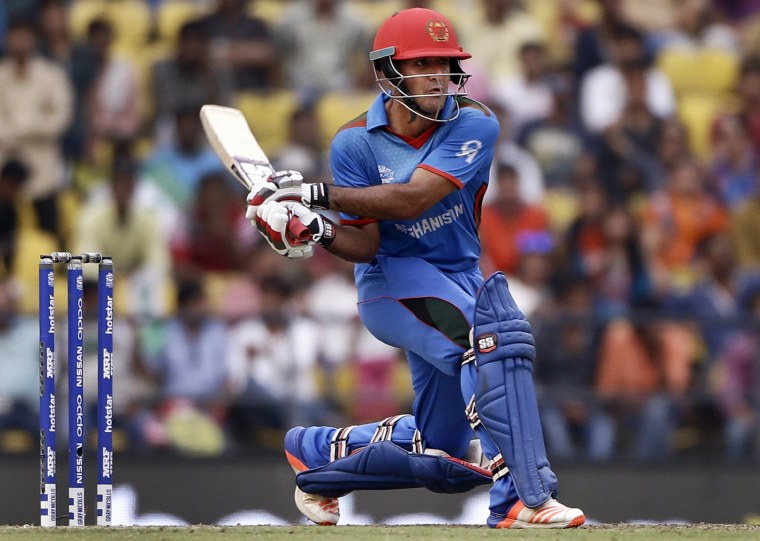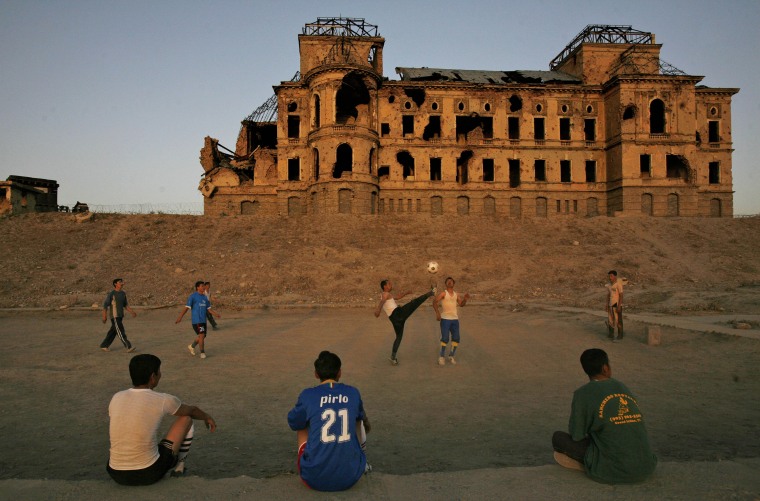KABUL, Afghanistan — Half of Kabul ground to a halt in celebration when the Afghan cricket team returned home this week after beating the West Indies at the World T20 tournament.
Men on the streets danced the traditional attan, President Ashraf Ghani called the team to congratulate the players and a string of dignitaries met them at the airport Tuesday.

But the same hero’s welcome was not extended to the nation’s soccer team a day later. They arrived home after a beating Singapore in a vital World Cup qualifier to only a handful of fans at the airport.
These different welcome parties are symptoms of a dangerous ethnic divide that still scars war-torn Afghanistan.
"Politicians do use the sport for their political purposes and that exacerbates ethnic tensions," said Hamid Elmi, a politics and sports analyst based in Kabul.
Pashtuns have for centuries been the dominant ethnic group in Afghanistan. Tensions between them and other groups, such as the Tajiks and the Hazaras, burst into the open during the country's civil war in the 1990s.
After the Pashtun Taliban was toppled in 2001, there have been efforts to heal the divisions. But this schism still exists on the country's sports fields, where ethnic loyalties play out with bats and balls instead of guns.
Pashtuns dominate cricket, the country’s other groups tend to be more involved in soccer.
Afghan refugees who fled to Pakistan during the Soviet invasion in the 1980s were predominantly Pashtuns. It was there they learned cricket, a sport that, similar to baseball, requires batsmen to score runs against a fielding opposition.
Today, cricket's enduring popularity among Pashtuns has led the sport to be used as a political tool, Elmi said. It is this ethnic politicking that prevents cricket from becoming a true national sport, he added.
"Most Pashtun politicians support the cricket team for their own political advantage because their constituents are Pashtun," Elmi said. "This hurts the sport and makes its progress slower."
In terms of its ethnic mix, soccer is "in much better shape than cricket," he added. "The team is much more diverse and includes players from all ethnic groups."

This situation means that many Tajiks, Hazaras, Uzebeks, and other non-Pashtun groups do not feel that cricket is their sport.
"Although it makes me happy when I see the cricket team win a match, I still do not see it as a national team," said Zahir Sadat, a Tajik member of Afghanistan's parliament. "It is not a national team. It is not made up of all the ethnic groups and until that changes it will remain an ethnic team."
But this is not because minorities are being excluded or segregated, young Pashtun players say. They believe the divide is a reflection of how cricket was introduced to Afghanistan and that someday it will become a true national sport.
Related: From War to World Cup: Afghan Team's 'Unbelievable Rise'
Ardent cricket fan Farid Mohammadi, a Pashtun from Wardak, said the segregation can be explained by looking at where the different ethnic groups fled after the Soviet invasion in 1979.
"Pashtuns went to Pakistan and most non-Pashtuns went to Iran and Central Asia," where soccer is the dominant sport, Mohammadi said. "After the fall of the Taliban, both sports found their place among different segments of society."
Mohammad Akbar, a Pashtun in his 20s living in Nangarhar Province, agreed.
"It is true that cricket is mostly played by Pashtuns," he said. "But it is not because the sport has any identity. It is because of the circumstances and geography."
Angar Bani, a 28-year-old economist from Jalalabad, said that "in a country like Afghanistan, where we have a recent history of ethnic conflict, this can be a problem."

The political influence over sport goes beyond who greets the teams at the airport. It extends into the institutions that govern them.
"There is definitely double standards on the part of the government in how it treats football and cricket," said Sayed Ali Kazemi, spokesman for the Afghan soccer federation.
Whereas the Afghanistan Cricket Board is a government-sponsored federation, the Afghan Football Federation, which oversees soccer, does not receive financial support.
"I respect cricket players but I do not relate to them," said Tajik soccer fan Omar Parwani. "I don’t see myself represented in cricket."
"In other countries, sports bring people together and affect politics," he said. "In Afghanistan, politics is affecting sports."
